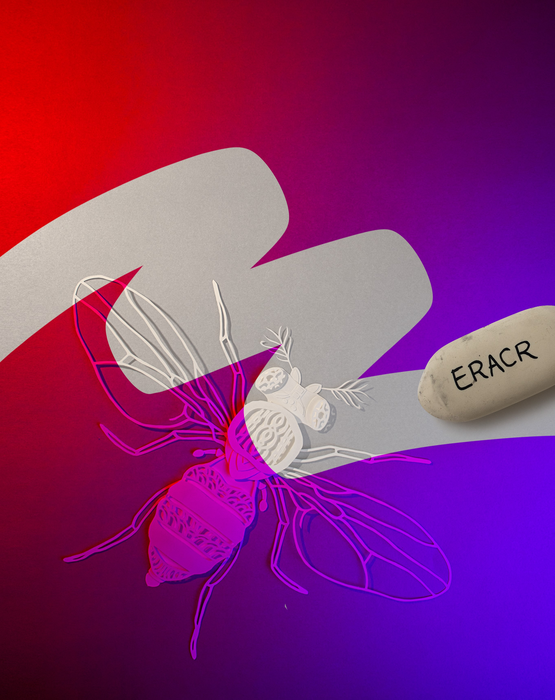Scientists at the University of California San Diego are hard at work on new genetic technologies intended for use in curbing mosquito populations, fighting the spread of malaria and mitigating the hazards associated with the deployment of gene-editing systems in the wild. That work is now being bolstered by a $1.4 million grant from the Bill & Melinda Gates Foundation.

Credit: Xiang-Ru Shannon Xu and Valentino Gantz
Scientists at the University of California San Diego are hard at work on new genetic technologies intended for use in curbing mosquito populations, fighting the spread of malaria and mitigating the hazards associated with the deployment of gene-editing systems in the wild. That work is now being bolstered by a $1.4 million grant from the Bill & Melinda Gates Foundation.
“My lab, historically, was a fruit fly lab,” said Ethan Bier, distinguished professor of developmental biology at UC San Diego and science director for the Tata Institute for Genetics and Society. “About five years ago in collaboration with the laboratory of Anthony James at UC Irvine, we started transferring some of our genetic strategies into mosquitoes. We’re very fortunate that the Gates Foundation is supporting the continuation of that work.”
Bier and his colleagues, at UC San Diego and beyond, have been working on next-generation gene drive systems based on CRISPR technology. When deployed, these breakthrough technologies could potentially spread through mosquito populations in one season, either by immunizing mosquitoes against malarial parasites or acting as genetic insecticides to reduce mosquito numbers. Malaria, a devastating disease transmitted by anopheline mosquitoes, infects more than 200 million people annually causing over 600,000 deaths globally, most of which are young children under five living in sub-Saharan Africa. Similar approaches might also help reduce the impact of other mosquito-borne pathogens including viruses causing dengue fever, Zika, chikungunya, yellow fever and West Nile disease.
Because the potential positive impact of this work is so great, the project also aims to address relevant social and ethical challenges, particularly as these techniques move from the lab into the wild. As part of this effort, Bier collaborates with colleagues from UC San Diego’s Institute for Practical Ethics to address issues of social and ethical importance surrounding gene-drive and other advanced genetic technologies.
UC San Diego scientists and their colleagues are working on two new neutralizing systems that address the risks of releasing gene drives into mosquito populations in their natural habitats. “There’s been a lot of concern that there are so many unknowns associated with the spread of gene drives in the wild,” said Bier. “Now we have developed drives with limited ability to spread, and mitigating systems to remove or halt drives if necessary.”
One neutralizing system, called ERACR (Element Reversing the Autocatalytic Chain Reaction), is designed to eliminate the gene drive. ERACRs are designed to be inserted at the site of the gene drive, where they use the Cas9 from the gene drive to attack either side of the Cas9, cutting it out. Once the gene drive is deleted, the ERACR copies itself and replaces the gene drive, which can be done very efficiently in fruit flies. A key objective in the new studies supported by the Gates Foundation will be to transfer the ERACR technology to mosquitoes. Another goal will be to build on other mitigation systems developed by the Bier group in flies to develop self-limiting genetic systems in mosquitoes.
Much of Bier’s current work is geared toward creating the right elements to mitigate risks, support expanded research in continued collaboration with the University of California Malaria Initiative (UCMI) and expedite approval for the technology to be used in nature.
Philanthropic support contributes to the Campaign for UC San Diego—a university-wide comprehensive fundraising effort concluding in June 2022. Alongside UC San Diego’s philanthropic partners, the university is continuing its nontraditional path toward revolutionary ideas, unexpected answers, lifesaving discoveries and planet-changing impact. To learn more about supporting the Division of Biological Sciences, visit biology.ucsd.edu/giving.




